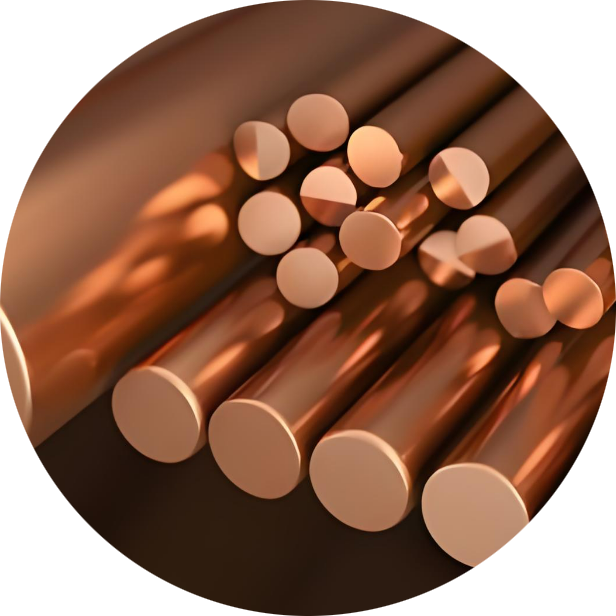Time to read: 6 min

Non-ferrous metals, distinguished by their absence of significant iron content, have played a pivotal role in human history and modern industry. This guide delves into the characteristics, applications, and historical significance of non-ferrous metals, offering insights into their unique properties and uses.
Understanding Non-Ferrous Metals
Non-ferrous metals are a diverse group of metals that do not contain iron in notable quantities. This category includes metals like copper, lead, nickel, titanium, and tin, as well as precious metals such as silver, gold, and tungsten. These metals are valued for their rust and corrosion resistance, ease of fabrication, and non-magnetic properties.
Historical Significance of Non-Ferrous Metals
Non-ferrous metals have been integral to human advancement, dating back to the Copper Age, which marked the beginning of metallurgy. The discovery of copper led to the development of forging and molding techniques, paving the way for the Bronze Age through the alloying of copper and tin.
Common Properties of Non-Ferrous Metals
Non-ferrous metals share several key properties that make them suitable for a wide range of applications:
- High Corrosion and Rust Resistance: Their low iron content contributes to their durability in outdoor applications.
- Non-Magnetic: Ideal for use in electronics and wiring.
- Lightweight: Generally lighter than ferrous metals, although some non-ferrous metals like lead and tungsten are exceptions.
- Cost: Typically more expensive due to demand and limited supply.
- Recyclability: Non-ferrous metals are easily recycled with minimal degradation, promoting environmental sustainability.
Notable Non-Ferrous Metals and Their Applications
The variety of non-ferrous metals each offers unique applications in manufacturing and industry:
Aluminum
Known for its lightweight and excellent machinability, aluminum is a base metal for many alloys and is widely used in the aerospace, automotive, and packaging industries.
Copper
Praised for its high electrical and thermal conductivity, copper is essential in manufacturing electrical equipment, heating vessels, and plumbing systems.
Nickel
Noted for its corrosion resistance and toughness, nickel is used in alloys for aerospace, automotive, and marine applications, as well as in the production of corrosion-resistant products.
Zinc
Used both as a standalone metal and as an alloying element, zinc is prominent in galvanizing steel to enhance corrosion resistance and in the production of brass.
Lead
The heaviest common non-ferrous metal, lead is used in batteries, radiation shielding, and as an anti-knock additive in fuels, despite its toxicity.
Silver
Recognized for its thermal and electrical conductivity, silver is utilized in electronics, solar panels, and jewelry making.
Gold
With its malleability and corrosion resistance, gold is favored in jewelry, electronics, and as a financial investment.
Titanium
Titanium's strength-to-density ratio and corrosion resistance make it suitable for aerospace, medical implants, and sports equipment.
Casting and Machining Non-Ferrous Metals
Non-ferrous metals are refined through electrolysis and are ideal for various casting methods, such as sand casting and investment casting. Their properties make them suitable for structural applications and metal parts manufacturing.
Differences Between Ferrous and Non-Ferrous Metals
Ferrous metals, containing significant iron, are valued for their strength and durability, commonly used in construction. In contrast, non-ferrous metals are rust and corrosion-resistant, lightweight, and non-magnetic, making them ideal for a variety of applications from outdoor structures to electronic components.
Conclusion
Non-ferrous metals, though more expensive due to their limited supply, offer a range of properties that make them indispensable in various industries. Unofactory, a leading manufacturing company, specializes in working with both ferrous and non-ferrous metals, providing services from rapid tooling to product prototyping. With competitive pricing and a user-friendly platform for obtaining quotes, Unofactory is the ideal partner for your next metal manufacturing project.




